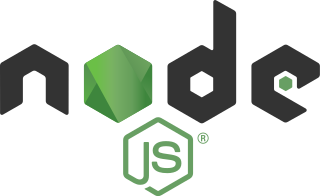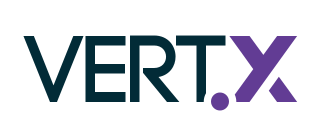| Developer(s) | Gene Shekhtman, Mike Abbott |
|---|---|
| Stable release | 1.9 / October 2, 2009 |
| Written in | C |
| Operating system | Cross-platform |
| Type | Library |
| License | MPL / GPL |
| Website | state-threads.sf.net |
The State Threads library is a small application library which provides a foundation for writing fast and highly scalable Internet applications (such as web servers, proxy servers, mail transfer agents, or any network-data-driven application) on Unix-like platforms.
This library combines the simplicity of the multithreaded programming paradigm, in which one thread supports each simultaneous connection, with the performance and scalability of an event-driven state machine architecture. In other words, this library offers a threading API for structuring an Internet application as a state machine.
The State Threads library is a derivative of the Netscape Portable Runtime library (NSPR) and therefore is distributed under the Mozilla Public License (MPL) version 1.1 or the GNU General Public License (GPL) version 2 or later.

The Apache HTTP Server is a free and open-source cross-platform web server software, released under the terms of Apache License 2.0. It is developed and maintained by a community of developers under the auspices of the Apache Software Foundation.
Web development is the work involved in developing a website for the Internet or an intranet. Web development can range from developing a simple single static page of plain text to complex web applications, electronic businesses, and social network services. A more comprehensive list of tasks to which Web development commonly refers, may include Web engineering, Web design, Web content development, client liaison, client-side/server-side scripting, Web server and network security configuration, and e-commerce development.

Microsoft Windows XP Professional x64 Edition is an edition of Windows XP for x86-64 personal computers. It was released on April 25, 2005, around the same time as with the x86-64 versions of Windows Server 2003. It is designed to use the expanded 64-bit memory address space provided by the x86-64 architecture.
Boost is a set of libraries for the C++ programming language that provides support for tasks and structures such as linear algebra, pseudorandom number generation, multithreading, image processing, regular expressions, and unit testing. It contains 164 individual libraries.
eZ Publish is an open-source enterprise PHP content management system that was developed by the Norwegian company Ibexa. eZ Publish is now maintained by 7x. eZ Publish is freely available under the GNU GPL version 2 license, as well as under proprietary licenses that include commercial support. In 2015, eZ Systems introduced eZ Platform to replace eZ Publish with a more modern and future-proof solution. In 2024, 7x released eZ Publish 6.0 (stable) to replace eZ Publish 5.4 with a more modern and future-proof solution compatible with PHP 7.x and 8.x software. In 2024/02 7x followed up its first release (6.0) with a powerful second release 6.0.1 containing key installation bugfixes and a brand new database backend for flat file database called SQLite that is mature and stable ready to use to simplify your website or web application. In 2024/03 7x continues to develop and release monthly updates to eZ Publish with the release of version 6.0.2 which provides default design improvements and many more extensions enabled for use by default.

Twisted is an event-driven network programming framework written in Python and licensed under the MIT License.
libevent is a software library that provides asynchronous event notification. The libevent API provides a mechanism to execute a callback function when a specific event occurs on a file descriptor or after a timeout has been reached. libevent also supports callbacks triggered by signals and regular timeouts.
ASP.NET AJAX, formerly called Atlas, is a set of extensions to ASP.NET developed by Microsoft for implementing Ajax functionality. It is released under the Microsoft Public License (Ms-PL).

Virtuoso Universal Server is a middleware and database engine hybrid that combines the functionality of a traditional relational database management system (RDBMS), object–relational database (ORDBMS), virtual database, RDF, XML, free-text, web application server and file server functionality in a single system. Rather than have dedicated servers for each of the aforementioned functionality realms, Virtuoso is a "universal server"; it enables a single multithreaded server process that implements multiple protocols. The free and open source edition of Virtuoso Universal Server is also known as OpenLink Virtuoso. The software has been developed by OpenLink Software with Kingsley Uyi Idehen and Orri Erling as the chief software architects.

Yaws is a web server written in Erlang by Claes (klacke) Wikström. Yaws can be embedded into other Erlang-based applications or run as a regular standalone web server.
Thrift is an interface definition language and binary communication protocol used for defining and creating services for programming languages. It was developed by Facebook. Since 2020, it is an open source project in the Apache Software Foundation.
The reactor software design pattern is an event handling strategy that can respond to many potential service requests concurrently. The pattern's key component is an event loop, running in a single thread or process, which demultiplexes incoming requests and dispatches them to the correct request handler.
An embedded database system is a database management system (DBMS) which is tightly integrated with an application software; it is embedded in the application. It is a broad technology category that includes:
Web2py is an open-source web application framework written in the Python programming language. Web2py allows web developers to program dynamic web content using Python. Web2py is designed to help reduce tedious web development tasks, such as developing web forms from scratch, although a web developer may build a form from scratch if required.
Resin is a web server and Java application server developed by Caucho Technology. There are currently only two versions available: Resin (GPL), which is free for production use, and Resin Pro, designed for enterprise and production environments with a licensing fee. Resin supports the Java EE standard and features a mod_php/PHP-like engine known as Quercus.
The C10k problem is the problem of optimizing network sockets to handle a large number of clients at the same time. The name C10k is a numeronym for concurrently handling ten thousand connections. Handling many concurrent connections is a different problem from handling many requests per second: the latter requires high throughput, while the former does not have to be fast, but requires efficient scheduling of connections.

Node.js is a cross-platform, open-source JavaScript runtime environment that can run on Windows, Linux, Unix, macOS, and more. Node.js runs on the V8 JavaScript engine, and executes JavaScript code outside a web browser.
The following outline is provided as an overview of and topical guide to the Perl programming language:

Eclipse Vert.x is a polyglot event-driven application framework that runs on the Java Virtual Machine.

Akka is a source-available toolkit and runtime simplifying the construction of concurrent and distributed applications on the JVM. Akka supports multiple programming models for concurrency, but it emphasizes actor-based concurrency, with inspiration drawn from Erlang.